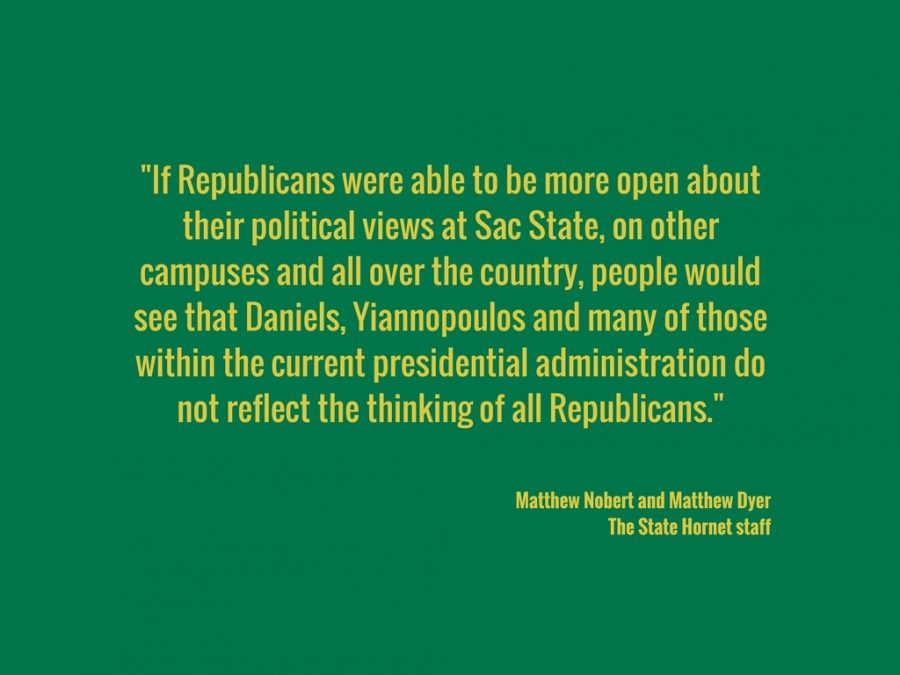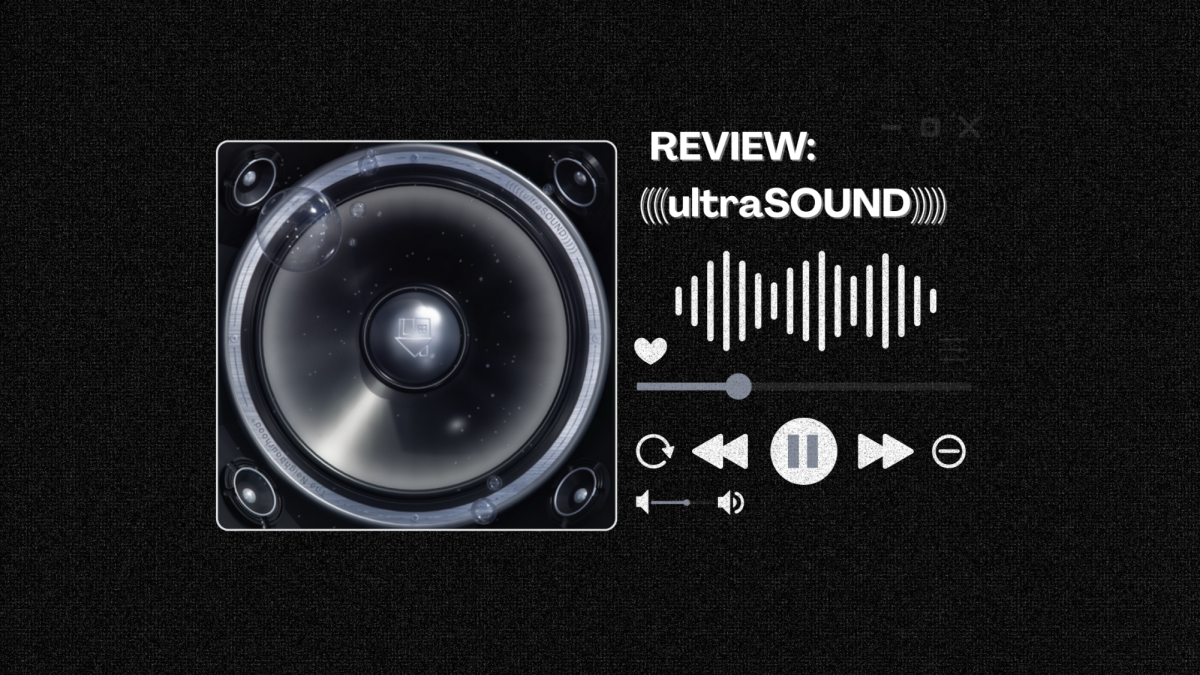By Matthew Nobert and Matthew Dyer
This is not a cry of victimhood.
This is not a plea for pity; this is not meant to speak for the majority and this is not an insinuation that Republicans do not feel safe on campus.
The following is simply a personal account of what it’s like being a conservative on a college campus in one of the most consistently blue states in the union.
Political debate should be a healthy conversation between individuals who may not agree with one another but still respect each other in the end. However, this is often not the treatment you get as a Republican in California, as conservatives are almost immediately met with resistance at the onset of the conversation.
The result is silence — Many conservative students do not want to speak their minds or their opinions because they do not want to be labeled a bigot or a racist or have their views misrepresented.
Tolerance is something that those on the left often speak of and aim at Republicans, claiming that we are the ones who aren’t willing to open up to new ideas. From this side of the aisle, however, it seems that whenever Republicans try to offer an alternative view to that of the Democrats it is shut down.
This is what makes being a Republican in California difficult — How are conservatives supposed to feel welcome to speak their minds if their viewpoints are preemptively rejected?
The stereotypes about Republicans are primarily the result of the most visible and outspoken members of the party, but that mindset does not speak for all of us.
With the election of Donald Trump, some might think that all Republicans share the opinions and ideas of this new administration, but they would be wrong.
The elevation of Trump to the party’s leadership is a mixed bag, and has been since his nomination — You have those who were all for Trump from the moment that he announced, those who simply couldn’t stand the idea of Hillary Clinton in office, and others who were just loyal to the party. Still other Republicans could not bring themselves to vote, voted outside the party or even just wrote in someone’s name.
Admittedly, it would be hard to believe that when members of the Sacramento State College Republicans tried to disrupt an anti-Trump protest on Feb. 2 by impeding the march while chanting “build the wall, protect us all.”
Last week, College Republicans President Mason Daniels went even further by announcing he was trying to get Milo Yiannopoulos — an outspoken leader of the “alt-right” who was chased out of UC Berkeley on Feb. 1 — to come speak at Sac State.
Daniels also sent a letter to the editor of The State Hornet asking for the resignation of Sac State President Robert Nelsen and ASI President Patrick Dorsey if they didn’t condemn the violence that occurred at Berkeley during Yiannopoulos’ visit.
“Many conservative students already do not feel safe on campus,” Daniels wrote in the letter.
But safety isn’t at all the issue. The issue is simply that Republicans do not feel like they have the ability to speak their minds — or even openly identify themselves as Republican — without fear of being shunned by their classmates, primarily because of the negative image created by people like Daniels who purport to speak for all of us.
The only reason that Sac State’s Republicans should be scared is because the person who “represents” them wants nothing more than to continue to divide Democrats and Republicans on campus.
If Republicans were able to be more open about their political views at Sac State, on other campuses and all over the country, people would see that Daniels, Yiannopoulos and many of those within the current presidential administration do not reflect the thinking of all Republicans.
Regardless of which party you identify with, everyone should feel empowered to speak up for themselves — do not simply allow the loudest people in your party to speak for you.




































































































































Robert Hansen • Feb 23, 2017 at 1:52 pm
Look at you Matt … and here I thought you were just a sports guy. I agree, we need to promote constructive debate and stop name calling. Keep it up.